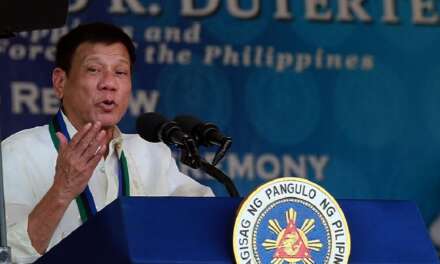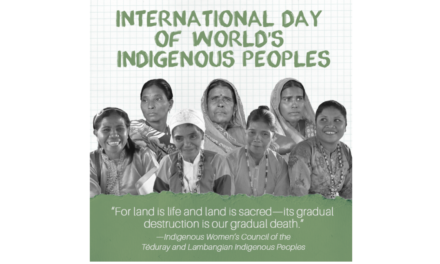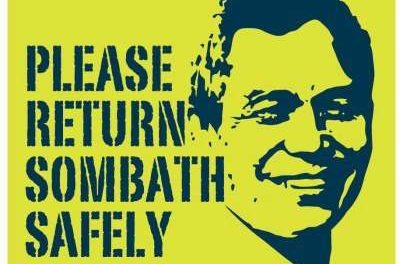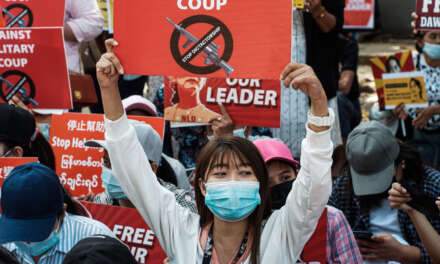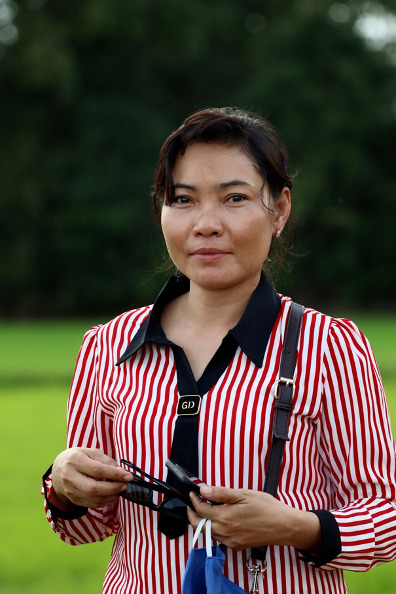
Chhoeun Ratha, a land rights’ activist, is a 40-year-old widow with three children, living in the Ou Vor Preng community land in Battambang province.
Leading the Charge
For more than ten years, I’ve been involved in various reclamation campaigns and activities that are usually directed against specific wealthy individuals infringing on peoples’ lands. I helped the affected community in registering their complaints with district and province offices, as well as the National Assembly. I have also provided support in drafting petitions on land concerns to relevant ministries including the Ministry of Justice. In addition, I joined community mobilizations to advocate for land rights and reclamation, to raise awareness among the general public and other civil society organizations. For instance, every year together with the communities we organize events on International Human Rights Day, International Women’s Day, and various other awareness days where we can discuss Housing Rights to raise awareness about what has occurred in our own neighbourhoods on land issues.
Many cases have transpired in my town, including property conflicts brought on by the abuse of the affluent and powerful. This has prompted me to join the fight for justice. Also, I ask, who will come out to aid me, the victim, if I do not engage in this activity, and who will come out to help other individuals who are also affected?
I believe that all activities in the community and in society require the participation of women in order to achieve true development. This is also in accordance with the national plan, which promotes women’s participation from the sub-national to the national level – women have the same rights as men and should not be oppressed in any form. We now see that many women are involved in their families and communities, and are simultaneously leading the charge to safeguard their natural resources and land. In the past, where most of the resistance movements were led by men, we can also see that there had been more threats and violence involved.
I believe that all activities in the community and in society require the participation of women in order to achieve true development.
Concerns and Challenges
What concerns me the most is that women leaders encounter various hurdles while participating in community mobilization efforts or for claiming property rights. Our biggest fear is not being able to see our children again as a result of participating in certain activities, especially against opponents more powerful than us, or when facing the authorities. The latter frequently seek to prevent their populace from petitioning or marching to Phnom Penh. This approach, in my opinion, is flawed; no civilized society is devoid of critical thought and action and suppressing criticism appears as a symptom of incompetence of those in power, and unwillingness to serve as true leaders of the people.
There are a number of options for getting a resolution on land rights for the community, which have included petitioning the other party or settling the dispute through cooperation. However, in some cases, the opposing side continues to employ a variety of means to damage the community and the victims of exploitation have not been successful in seeking redressal. Here we see that both the perpetrators and the relevant authorities have played a part in delaying solutions, while other institutions have remained silent.
My ambition is similar to that of most women: I want a good home where my children may go to school and live comfortably, free of the ongoing land conflict. I believe that widows like me should not be discriminated against, particularly by local authorities. Rather, efforts need to be directed at expediting the settlement of our community’s land concerns, as well as to stop corruption and provide justice to my community.

